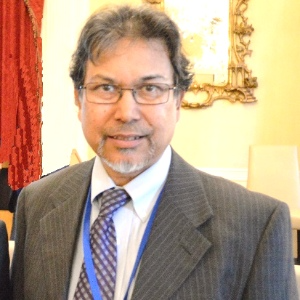Polymer degradation, a critical facet of material science, investigates the transformative processes that polymers undergo when exposed to environmental factors, leading to changes in their structure and properties over time. Environmental elements such as heat, light, oxygen, and moisture can initiate degradation, breaking down the polymer chains and altering their molecular configuration. Material scientists delve into understanding these degradation mechanisms to predict and control the lifespan and performance of polymer-based materials. Analytical techniques, including spectroscopy and chromatography, help in tracking changes at the molecular level during degradation. The insights gained from polymer degradation studies are instrumental in designing materials with improved resistance to environmental factors, ensuring durability and stability in diverse applications. This interdisciplinary approach not only aids in optimizing the performance of existing materials but also contributes to the development of more resilient and sustainable polymers, addressing the evolving demands of industries ranging from packaging to biomedical devices. The exploration of polymer degradation within the realm of material science remains integral to advancing the longevity and functionality of polymer-based materials in our everyday lives.

Ephraim Suhir
Portland State University, United States
Thomas J Webster
Interstellar Therapeutics, United States
Robert Buenker
University of Wuppertal, Germany
Will Skene
Montreal University, Canada
Valeriy A Buryachenko
Micromechanics & Composites LLC, United States
Anis Rahman
Applied Research & Photonics, Inc, United States
Will Skene
Montreal University, Canada
Robert Guidoin
Laval University, Canada
Robert Buenker
University of Wuppertal, Germany


Title : Introducing picotechnology: An exciting extension of nanotechnology
Thomas J Webster, Interstellar Therapeutics, United States
Title : The failure of both einsteins space-time theory and his equivalence principle and their resolution by the uniform scaling method
Robert Buenker, University of Wuppertal, Germany
Title : Material challenges with proton conducting ceramics for intermediate temperature hydrogenation/dehydrogenation applications
Saheli Biswas, Commonwealth Scientific and Industrial Research Organisation, Australia
Title : Porphyrin layers at metal-electrolyte interfaces monitored by EC-STM and CV
Marek Nowicki, University of Wroclaw, Poland
Title : Color control of electrochromes by structural modification
Will Skene, Montreal University, Canada
Title : Make experiments more efficient: Two simple and powerful approaches. Mg2Si growth for photovoltaic and thermoelectric applications
Alexander S Gouralnik , Institute of Automation and Control Processes, Russian Federation
Title : Reconfigurable antenna structures using tunable materials
Nasimuddin, Institute for Infocomm Research, Singapore
Title : (0, 1 and 2) Dimensional hybrid architecture of the synthesized materials leads the smart sensing of the gaseous species at low/room temperature
D R Patil, North Maharashtra University, India
Title : Enhanced grain refinement, precipitates regulation, and improved mechanical properties of cast Al-Li alloy by Ti addition and heat treatment
Lixiong Shao, Shanghai Jiao Tong University, China
Title : Broadband sound attenuation of shape memory polymer with triangular-honeycomb unit cell metamaterial structural design
Musaab Ejaz, Universiti Teknologi PETRONAS (UTP), Malaysia